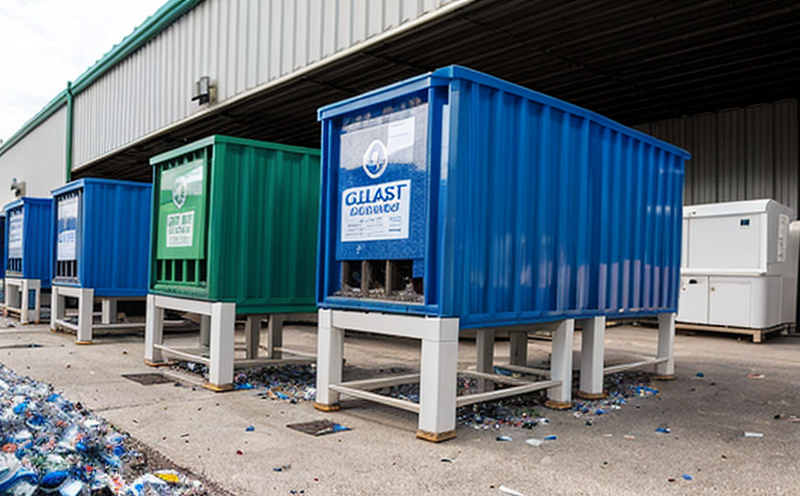EN 12929 Ceramic Waste Hardness Evaluation
The European Standard EN 12929 provides a comprehensive framework for evaluating the hardness of ceramic waste materials through standardized testing methods. This service is particularly relevant to sectors dealing with waste management, recycling, and environmental sustainability initiatives. By employing this standard, quality managers and compliance officers can ensure that recycled ceramics meet stringent physical properties requirements, thereby enhancing their suitability for reuse.
The process involves subjecting ceramic waste samples to a hardness test using defined methodologies that simulate real-world conditions. This helps in assessing the durability and integrity of recycled ceramics, which is crucial for industries relying on sustainable materials. The evaluation ensures that recycled products are consistent with original specifications, thus maintaining product quality across various applications.
During testing, ceramic waste specimens undergo a series of mechanical stress tests to determine their resistance to indentation or scratching by a defined hardness tool. This process allows for the quantification of material properties, providing insights into the potential performance and longevity of recycled ceramics in different environments.
The significance of this service extends beyond mere compliance; it supports innovation by offering data that can guide R&D engineers in optimizing recycling processes and developing new products. For procurement teams, ensuring adherence to EN 12929 helps in selecting reliable suppliers who meet the highest quality standards for recycled materials.
Moreover, the standard plays a pivotal role in environmental sustainability by promoting the reuse of resources, reducing landfill waste, and conserving natural resources. By leveraging this service, companies can contribute positively to sustainable development goals while maintaining product quality and performance.
Applied Standards
The European Standard EN 12929 for Ceramic Waste Hardness Evaluation is widely recognized in the recycling sector due to its rigorous methodology. This standard specifies the procedures for testing the hardness of ceramic waste materials, ensuring consistency and reliability across different laboratories.
The standard outlines several key aspects including:
- Selection of appropriate hardness tools
- Preparation of test specimens
- Application of standardized loading conditions during testing
- Determination of the maximum resistance to indentation or scratching
By using EN 12929, laboratories can provide clients with confidence in the quality and performance of recycled ceramics. This not only supports compliance with regulatory requirements but also enhances brand reputation by demonstrating a commitment to sustainability and quality.
Eurolab Advantages
At Eurolab, our expertise in waste management and recycling testing ensures that we provide the most accurate and reliable ceramic hardness evaluations. Our team of specialists understands the complexities involved in this service, ensuring compliance with EN 12929 while delivering actionable insights.
We offer a range of benefits that set us apart from other laboratories:
- Comprehensive Testing Capabilities: We have state-of-the-art equipment and methodologies to conduct thorough hardness tests as per the standard.
- Experienced Personnel: Our team comprises highly qualified professionals with extensive experience in waste management and recycling.
- Consistent Results: Using standardized procedures, we ensure that every test is conducted under controlled conditions for consistent outcomes.
- Comprehensive Reporting: In-depth reports are provided, offering detailed analysis of the hardness properties of ceramic waste materials.
Our commitment to quality and sustainability is reflected in every service we offer. By partnering with us, businesses can gain valuable insights into their recycling processes and product performance, ultimately leading to more efficient and environmentally friendly practices.
Competitive Advantage and Market Impact
The implementation of EN 12929 in ceramic waste hardness evaluation provides significant competitive advantages for companies operating within the recycling sector. By adhering to this standard, businesses can differentiate themselves by offering high-quality recycled products that meet stringent physical property requirements.
Compliance with this standard enhances brand reputation and consumer trust, which are crucial factors in today’s market. It also opens up new opportunities for collaboration with regulatory bodies and industry stakeholders who prioritize sustainability and quality.
In the broader context of waste management and recycling, EN 12929 plays a vital role in driving innovation by providing accurate data that can inform process improvements and product development. This standard supports the transition towards more circular economies where resources are reused rather than discarded.
The adoption of this service by companies contributes to environmental sustainability goals by reducing waste and conserving natural resources. By leveraging Eurolab’s expertise, businesses can ensure they are at the forefront of sustainable practices while maintaining product quality and performance.





